Pest activity isn’t random—it’s heavily influenced by environmental conditions. Factors such as temperature, humidity, and changing seasons play a significant role in how pests behave, where they live, and how they reproduce. Understanding the connection between climate and pest behavior is crucial for effective pest management, whether you’re a homeowner dealing with seasonal invaders or a business needing year-round protection.
How Climate and Environment Influence Pest Behavior
Pests are highly adaptable creatures, but their habits are closely tied to environmental factors. Temperature shifts, rainfall patterns, and even extreme weather events can determine pest population growth, migration, and survival rates. The rise in global temperatures and changing ecosystems have made it more important than ever to consider the relationship between the environment and pests when developing pest control strategies.
Seasonal Changes and Pest Activity
Seasonal shifts dramatically affect pest behavior. Many pests thrive during specific times of the year due to favorable conditions. Here’s how seasonal pests respond to environmental changes:
- Spring: Warmer temperatures bring pests like ants, termites, and flies out of hibernation. This is also the breeding season for many insects, leading to population surges.
- Summer: High humidity and heat create ideal conditions for mosquitoes, wasps, and ticks. These pests become more active, increasing the risk of bites and infestations.
- Fall: As temperatures cool, rodents and cockroaches begin seeking shelter indoors, making homes and businesses more vulnerable to infestations.
- Winter: While some pests go dormant, others, like mice and spiders, remain active indoors where it’s warm. This makes winter a critical time for indoor pest control.
Understanding these seasonal patterns helps in predicting pest activity and implementing proactive control measures throughout the year.
The Long-Term Impact of Climate Change on Pest Behavior
Climate change and pest control are now closely linked. As global temperatures rise, pest populations are expanding into new regions, and their behaviors are shifting. Here are some emerging trends:
- Extended Breeding Seasons: Warmer climates allow pests like mosquitoes and ticks to reproduce year-round, increasing the risk of disease transmission.
- Migration to New Areas: Invasive species are spreading to regions where they previously couldn’t survive, creating new pest management challenges.
- Increased Pest Resilience: Some pests are adapting to extreme weather conditions, making traditional control methods less effective.
These changes require a more dynamic approach to pest management, focusing on long-term strategies that account for evolving environmental conditions.
Adapting Pest Control Strategies to Environmental Changes
To combat the influence of pests and weather, it’s essential to adjust pest control methods accordingly. Here are some effective strategies:
- Year-Round Monitoring: Regular inspections help detect pest activity early, regardless of the season.
- Integrated Pest Management (IPM): This approach combines biological, physical, and chemical controls tailored to environmental factors, reducing reliance on pesticides.
- Climate-Specific Solutions: Use weather-resistant pest control methods, such as moisture barriers in humid areas or heat treatments for certain infestations.
- Preventive Measures: Seal cracks, manage waste, and control moisture levels to minimize conditions that attract pests, especially during seasonal transitions.
By staying proactive, you can effectively manage pests influenced by changing climates and reduce the risk of infestations.
Conclusion
The relationship between climate and pest behavior is undeniable. As environmental conditions continue to shift due to seasonal changes and climate change, understanding these patterns is key to effective pest management. Whether you’re dealing with seasonal pests or adapting to new pest threats influenced by climate, staying informed and proactive is your best defense. For expert assistance, trust Horizon Pest Control, where our specialists in environmental pest management can help keep your home or business pest-free year-round. Contact us today to schedule a consultation and protect your property from climate-driven pest issues.

